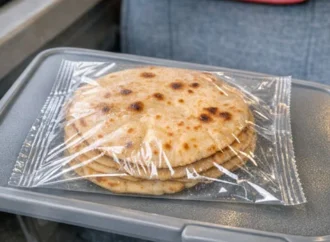India’s booming quick commerce sector, known for delivering groceries and essentials within minutes, is now under intense scrutiny over serious hygiene lapses and food safety violations. At the heart of the issue are dark stores—warehouse-like storage hubs that stock and dispatch products for last-mile delivery. Once lauded for their role in fast retail, these facilities are now drawing sharp criticism from both industry leaders and government regulators.
Top Food Brands Raise Red Flags
In recent months, nearly a dozen leading packaged food companies, including Britannia, KRBL, Heritage Foods, and others, have formally complained to quick commerce platforms. Their concerns: poor storage practices, unhygienic conditions, and violations of basic food safety norms. Varun Berry, Managing Director of Britannia Industries, stated, “We supply the freshest stock to our quick commerce partners with over 70% shelf life intact, adhering to temperature guidelines. From there, platforms must ensure hygiene and follow FMFO (First Manufacturing First Out) in last-mile delivery.”
For many brands, quick commerce platforms now account for up to 20% of total sales. However, backend hygiene issues risk damaging consumer trust. A senior executive from a frozen food company shared a concerning incident: “We found agarbatti sticks stored next to frozen snacks in a dark store. That kind of odour transfer can severely impact product quality.”
Regulators Respond with Inspections and Suspensions
These mounting complaints have caught the attention of authorities like the Food Safety and Standards Authority of India (FSSAI) and state-level bodies such as the Food and Drug Administration (FDA). The Maharashtra FDA recently suspended food business licences of Zepto and Blinkit dark stores in Dharavi and Pune after discovering fungal contamination and unsanitary storage practices. Earlier, a raid conducted by the Telangana food safety commissioner also flagged similar lapses at Blinkit warehouses, highlighting that the issue is not isolated to one region.
FSSAI, which operates under the Union Health Ministry, has ramped up surprise inspections nationwide, targeting dark stores in metro cities, tier-2, and even smaller markets. A senior government official confirmed, “It’s a work in progress. We are receiving complaints from both consumers and vendors.”
New Regulations to Strengthen Oversight
To tighten control, FSSAI has amended regulations requiring that e-commerce and quick commerce platforms deliver only those products with at least 30% of their shelf life remaining or a minimum of 45 days before expiry. Despite this, compliance remains inconsistent, especially in franchised warehouses where quality checks are often lax.
Vikram Agarwal, MD of Cornitos maker Greendot Health Foods, said, “Franchised dark stores are the weakest link. We’ve asked platforms to step up audits and enforce stricter quality controls.” The quick commerce sector has also come under scrutiny for its use of manipulative design tactics—known as dark patterns—that can mislead consumers into unintended purchases, further straining public trust.
Systemic Growth, Structural Gaps
India’s quick commerce sector is expanding rapidly. Dark stores grew from 1,800 in FY24 to over 4,000 now and are expected to cross 5,500 by FY26. This explosive growth has outpaced the establishment of strong hygiene infrastructure, leaving gaping holes in operational standards.
Kunal Sharma, head of marketing at KRBL (makers of India Gate rice), emphasised, “Hygiene protocols are non-negotiable. Consumers rely on us to ensure safe, quality delivery right to their doorstep. FSSAI and FDA play a critical role in enforcing that standard.” Srideep Kesavan, CEO of Heritage Foods, echoed the urgency: “Dark stores must reflect the same quality consumers expect in-store. Cold chain integrity and hygienic handling cannot be compromised.”
A Sector at Crossroads: The Call for Responsible Growth
As platforms like Swiggy Instamart, Zepto, and Blinkit redefine convenience retail, their rapid growth must be rooted in responsibility. The central government is now considering broader surveillance measures to ensure compliance and prevent further violations. Quick commerce has revolutionised how India shops, but the ecosystem behind the speed must prioritise safety. As violations surface, it is imperative for regulators, platforms, and brands to work in tandem to protect consumer health and rebuild trust. The choice is clear: strengthen standards today or risk lasting damage to one of India’s fastest-growing retail segments.
Source: The Economic Times
 Food Manifest
Food Manifest 


















